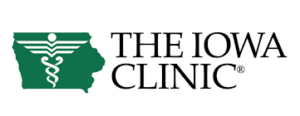About us
We are the Iowa Coalition of Clinical Researchers (ICCR). Our mission is to explain to patients, health care providers, legislators, policymakers and business leaders the economic value and patient benefits of clinical research in Iowa.
We seek to:
- Educate Iowans about clinical research being conducted in their communities and the benefits of clinical trials to the state’s patients
- Give patients the information they need to decide whether to participate in clinical trials
- Bring more clinical research to Iowa



![]()

![]()

![]()

Heartland Medical Research, Inc. • Integrated Clinical Trials Services • The Iowa Clinic • Iowa Diabetes and Endocrinology Research Center • Iowa Heart Center • Iowa Oncology Research Association • MercyOne Covenant Clinic • MercyOne Oncology • UnityPoint Health • University of Iowa Institute for Clinical and Translational Science
What are clinical trials?
In the development of new medicines, clinical trials are conducted to establish therapeutic effectiveness and safety and compile the evidence needed for the U.S. Food and Drug Administration (FDA) to approve new treatments. They are voluntary research studies conducted in people and designed to answer specific questions about the safety and effectiveness of drugs, vaccines, other therapies, or new ways of using existing treatments.
Clinical trials of new medicines are typically conducted in three phases and, on average, account for nearly seven of the more than 10 years it takes to bring a new medicine from development to patients. Clinical trials are responsible for more than half of the $2.6 billion average cost of developing one new innovative medicine.
Important therapeutic options for Iowa patients
Since 2004, biopharmaceutical research companies have conducted or are conducting more than 2,370 clinical trials of new medicines in Iowa in collaboration with clinical research centers, hospitals, and local research institutions. These clinical trials have investigated or are investigating some of Iowa’s biggest health care challenges, including asthma, arthritis, cancer, diabetes, cardiovascular disease and gastrointestinal diseases.
For patients, clinical trials may offer the potential for another therapeutic option, or provide for a treatment where no FDA-approved treatments exist. Clinical trials may provide a new avenue of care for some chronic disease sufferers who are still searching for the medicines that are best for them.
Additionally, some clinical trials are conducted to compare existing treatments and some are done to explore whether a medicine is appropriate for a different patient population, such as children or the elderly. Still others are conducted to find ways to make existing approved treatments more effective and easier to use with fewer side effects.
Economic impact
A study by TEConomy Partners found that in 2020, the industry supported more than 22,000 jobs throughout Iowa. Wages and benefits for employees whose jobs were supported by the biopharmaceutical sector resulted in $327.9 million in state and federal taxes paid.
Biopharmaceutical research companies supported the generation of $6.7 billion in economic activity in the state, including the direct economic output of the sector itself, the output of the sector’s vendors and suppliers and the output generated by the buying power of its workforce.
A separate study by TEConomy Partners found that in 2017 alone, there were 293 active industry-sponsored clinical trials in Iowa, with an estimated enrollment of 5,650 Iowa residents. Oncology/cancer was the largest clinical trial disease area by total estimated enrollment in the state.
The investment at clinical trial sites was more than $77 million and the estimated total economic impact was more than $187 million.
Iowa's Biopharmaceutical Sector
$0
Total jobs supported directly and indirectly$0M
Total state and federal taxes paid$0B
Total value of goods and services supportedIowa Clinical Trials
0
0
$0M
$0M
Patient Resources
Patients can learn about clinical trials in several ways. Health care providers may be aware of clinical trials being conducted at hospitals, universities, and other leading health care facilities, and these institutions can be valuable sources of information for patients looking to participate. Patients can also use hospital and university websites to find the trials being conducted in their area. For more information about clinical trials in Iowa and how to participate in a clinical trial, visit www.centerwatch.com or www.clinicaltrials.gov.
Additionally, patient advocacy groups in Iowa serve as an exceptional resource for patients, offering opportunities to connect and learn more about their condition and what treatment options are available locally. These groups also provide an important voice on behalf of patients to protect access to medicines and treatments.
What to Expect
Since clinical trials are often conducted in a doctor’s office, patients may need to devote more time to physician visits and physical examinations. They may also have additional responsibilities, like keeping a daily log of their health. Generally, prospective participants will receive information about the potential risks and benefits of participating in the trial and must sign an informed consent document saying, among other things, they understand that the clinical trial is research, and that they can leave the trial at any time. Patients can volunteer to participate, leading to a pre-screening interview. If they fit the criteria and requirements of the test, they may be enrolled.
As part of the informed consent process, clinical trial sponsors must disclose any additional costs to the subject that may result from participating in the research. During pre-screening discussions with the clinical trial investigator, the patient can also ask about associated costs to participate in the trial. Clinical trial sponsors usually pay for all research-related expenses and additional testing or physician visits required by the trial. Patients or their health insurance plan may be asked to pay for any routine treatments for their disease. However, it is important for the patient to know whether their health plans will pay for clinical trial participation or whether there will be out-of-pocket costs at the patient’s expense.
Patients should learn whether they or their health insurance plan will be assessed any fees, and they should determine if their insurance will cover the expense of routine examinations. Patients who live a distance from the trial site should inquire whether the clinic has a policy for covering travel costs and living expenses. The National Cancer Institute, for example, makes patients cover for their own travel costs for the initial screening visits. Once a patient is enrolled in the trial, the Institute pays for transportation costs for all subsequent trial-related visits. These patients may also receive a small per diem for food and lodging.
Expanded Access
For patients with a serious or life-threatening disease who are ineligible or unable to participate in a clinical trial, use of an unapproved investigational medicine through an expanded access program may be an option. Expanded access is the use of an unapproved investigational medicine outside of a clinical trial to treat a patient with a serious or immediately life-threatening disease or condition, when there are no other comparable or satisfactory alternative treatment options. Expanded access programs are part of many biopharmaceutical companies’ commitment to patients.
Diversity
As a nation, we are in a new era of medicine where breakthrough science is transforming patient care, but these innovations are meaningless if they don’t reach all patients. It is critical that patients from traditionally underserved communities have access to innovative medicines. Achieving health equity is essential in creating a health care system that truly works.
Systemic racism that exacerbates health inequities has contributed to long-standing disparities in prevalence and severity of disease across racial and ethnic groups. These disparities can reflect in how often a disease occurs in a certain patient population, how serious the disease manifests itself in patients or how often a disease results in death.
Health disparities have many causes, including limited access to quality health care, health screenings, living and working conditions, experiences with the health care system/patient confidence, racism, bias in the treatment setting, underrepresentation of minority health care providers, and other social determinants of health, clinical trial participation, language barriers, and economics and insurance coverage.
The research-based biopharmaceutical industry recognizes the importance of including diverse patients in clinical trials for new medicines so that the clinical trial population reflects the intended treatment population. Addressing the systemic issues that deter Black and Hispanic communities from participating in clinical trials is critical to enhancing clinical trial diversity so that those who want to participate, can.
Underrepresentation of racial and ethnic groups in clinical trials for new medicines has a long history. In an effort to address this long-standing mistrust and other issues, PhRMA and its member companies recently issued the first-ever industry-wide principles on clinical trials diversity, adding a new chapter to the already existing Principles on Conduct Clinical Trials & Communication of Clinical Trial Results. The new clinical trial diversity principles address:
- Building Trust and Acknowledging Past Wrongs
- Reducing Barriers to Clinical Trial Access
- Using Real-World Data to Enhance Information on Diverse Populations Beyond Product Approval
- Enhancing Information About Diversity and Inclusion in Clinical Trial Participation
Local Patient Groups
Alzheimer's Association
Des Moines/Central Iowa Area Office
1415 28th Street, Suite 430
West Des Moines, IA 50266
(515) 440-2722
Alzheimer’s Association
Burlington Area Mobile Office
1225 E. River Road, Suite 130
Davenport, IA 52803
*Mail only
Alzheimer’s Association
Cedar Rapids Area Office
317 17th Avenue SE, Suite 402
Cedar Rapids, IA 52401
American Cancer Society
Iowa Chapter
P.O. Box 715
Des Moines, IA 50303
800-227-2345
American Diabetes Association
Serving Iowa, Nebraska and South Dakota
P.O. Box 7023
Merrifield, VA 22116-7023
(317) 352-9226
ADAIN@diabetes.org
American Heart Association
Des Moines Chapter
8805 Chambery Blvd., Suite 300 PMB 126
Johnston, IA 50131
(515) 414-3200
American Heart Association
Eastern Iowa Chapter
1035 N. Center Point Road, Suite B
Hiawatha, IA 50131
(319) 536-3900
American Liver Foundation
Iowa State Resource Center
(800) 465-4837
info@liverfoundation.org
American Lung Association
National Office
55 W. Wacker Drive, Suite 1150
Chicago, IL 60601
(800) 586-4872
Arthritis Foundation
National Office
1355 Peachtree Street NE, Suite 600
Atlanta, GA 30309
(800) 283-7800
Epilepsy Foundation of Iowa
1111 19th Street, Suite 370
Des Moines, IA 50314
(515) 259-8528
rcogil@efa.org
NAMI Iowa
National Alliance on Mental Illness
3839 Merle Hay Road, Suite 229
Des Moines, IA 50310
(515) 254-0417
National Kidney Foundation
Serving Iowa and Nebraska
6165 Northwest 86th Street
Johnston, IA 50311
(515) 440-0402 ext. 463, (800) 596-7943
Additional Patients Resources
MEDICINE ASSISTANCE TOOL (MAT)
The Medicine Assistance Tool is a PhRMA-sponsored search engine designed to help patients, caregivers and health care providers learn more about the resources available through the various biopharmaceutical industry programs. MAT is available to those who need financial support due to their lack of insurance or inadequate prescription medicine coverage. MAT is not its own patient assistance program, but rather, a search engine for many of the support programs and resources that the biopharmaceutical industry has offered for decades. The online process takes about 15 minutes, and patients can find out instantly if they are eligible for assistance. Patients can visit www.mat.org for more information.
HEALTHCARE READY
Healthcare Ready is a tool activated to help keep emergency responders informed on the status of the biopharmaceutical supply chain in the event of a natural disaster or emergency. Healthcare Ready’s Rx Open tool has been deployed in 11 states and the District of Columbia and helps victims and evacuees who needed to fill or re-fill their prescriptions find open pharmacies. Healthcare Ready also helps emergency responders with critical information on the challenges facing supply chain partners relating to electricity, fuel and transportation issues. Patients can visit www.healthcareready.org for more information.
